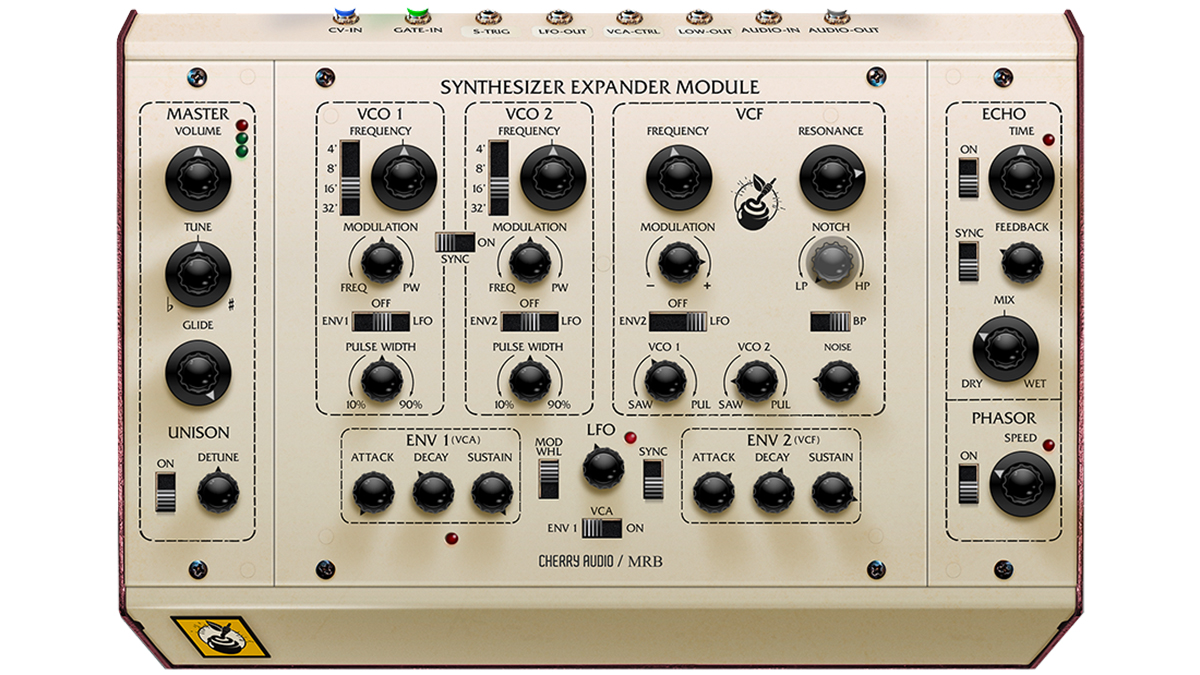Cherry Audio kicks off the festive celebrations with a free plugin emulation of Oberheim’s classic SEM synth module
Have yourself a Cherry little Christmas
If you’re just getting into the whole electronic music-making lark, there’s a case to be made that Cherry Audio’s new Synthesizer Expander Module - an emulation of the classic Oberheim SEM - is the perfect free plugin.
Not only can you have it for nothing but, thanks to its inherent simplicity, it’s also the ideal synth on which to learn the programming ropes. Oh, and, coming from Cherry Audio, you can pretty much guarantee that it’s going to sound good, too. How’s that for holiday cheer?
Although it was just a basic monosynth, the Oberheim SEM is something of a legend. Released in 1974, it offered dual oscillators and a multimode 12dB/octave filter with lowpass, bandpass, bandpass and notch modes.
It was this filter that helped to elevate the SEM’s sound and reputation, and it’s been emulated in Cherry Audio’s freebie with the help of synth designer Mark Barton. Barton has also added a ‘phasor’ effect, and there’s an echo that can be tempo-synced.

Other features include two envelopes, an LFO and a “massive” Unison mode, while the 100 supplied presets cover basses, leads and percussion. All controls can be automated in your DAW, and there’s comprehensive MIDI control.
So, yeah - pretty much everything you need in a ‘first synth’, and all for free. It’s not only beginners who should seek this one out, though: as early Christmas presents go, it’s up there with the best, whatever your level of experience
If you want more of the same, don’t forget that Cherry Audio also offers the Eight-Voice plugin, which is effectively eight SEMs in one. This is currently on sale for $39 (regular price $59).
Get the MusicRadar Newsletter
Want all the hottest music and gear news, reviews, deals, features and more, direct to your inbox? Sign up here.
You can snaffle the Synthesizer Expander Module over on the Cherry Audio website. It runs on PC and Mac in VST/AU/AAX formats.



I’m the Deputy Editor of MusicRadar, having worked on the site since its launch in 2007. I previously spent eight years working on our sister magazine, Computer Music. I’ve been playing the piano, gigging in bands and failing to finish tracks at home for more than 30 years, 24 of which I’ve also spent writing about music and the ever-changing technology used to make it.



![PRS Archon Classic and Mark Tremonti MT 15 v2: the newly redesigned tube amps offer a host of new features and tones, with the Alter Bridge guitarist's new lunchbox head [right] featuring the Overdrive channel from his MT 100 head, and there's a half-power switch, too.](https://cdn.mos.cms.futurecdn.net/FD37q5pRLCQDhCpT8y94Zi.jpg)





